Coffee grounds are a rich source of natural fertilizer, helping to improve soil, promote plant growth, and prevent pests. Learn how to use it effectively!
Have you ever faced issues with poor soil quality or plants not growing as expected? This is a common challenge for many gardeners and farmers. Improving soil and providing sufficient nutrients for plants are crucial but often overlooked. Without timely intervention, you might experience reduced crop yields and incur additional costs to address the problem. Coffee grounds offer an effective and easy-to-apply solution for improving plant health. Let’s explore the details in this article!
The benefits of coffee grounds for plants have become a popular topic in plant care. Coffee grounds, a byproduct of brewing coffee, can not only be recycled effectively but also provide numerous benefits for your plants.
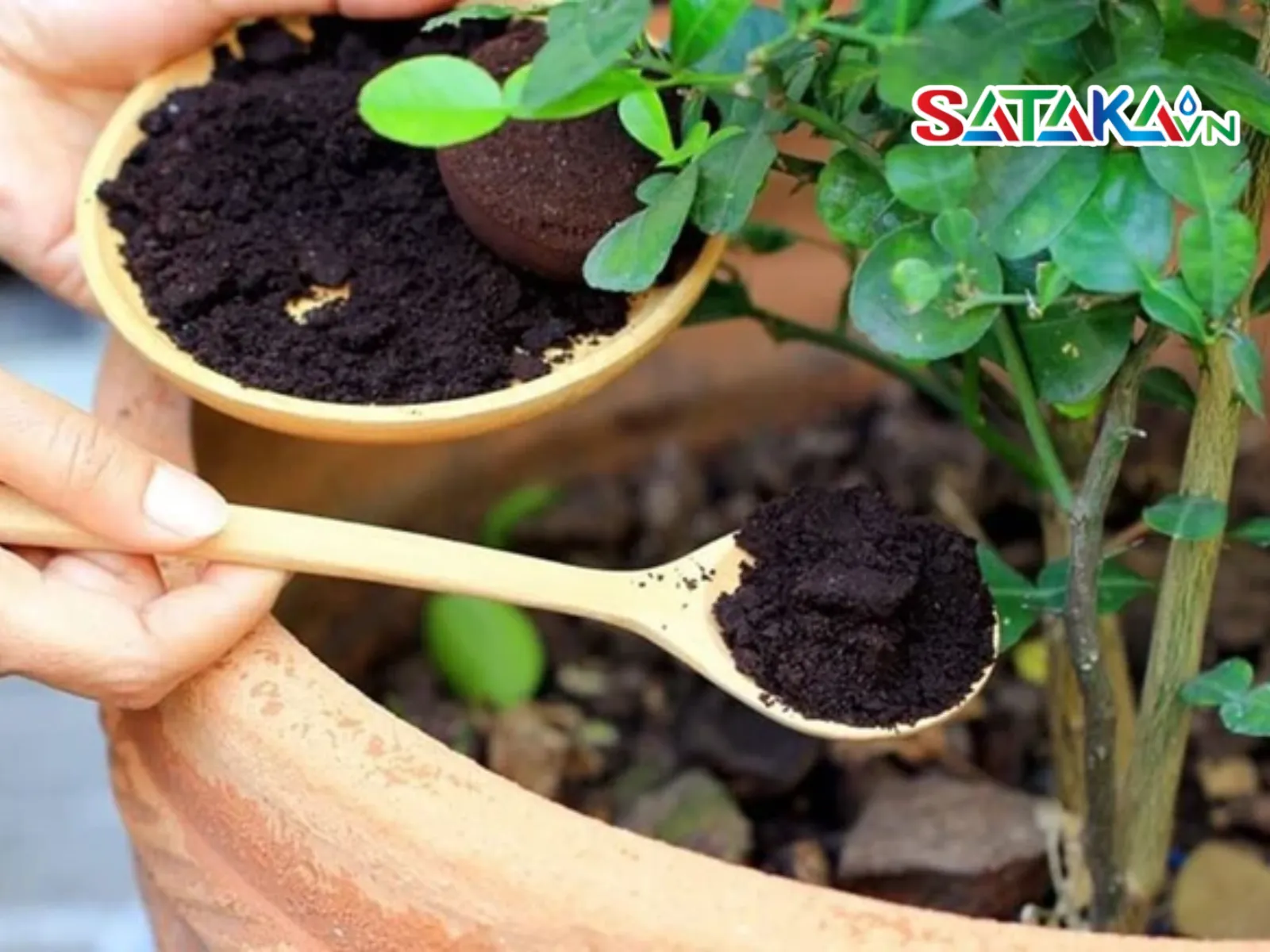
Fertilizing with coffee grounds helps provide nutrients to the plant
Using coffee grounds as fertilizer utilizes a natural resource while supplying essential nutrients to plants. Coffee grounds improve soil aeration, enhance soil structure, and provide a rich source of nutrients. Studies have shown that coffee grounds contain small amounts of nitrogen, phosphorus, and potassium—key elements for healthy plant growth.
Coffee grounds are more than just waste material after brewing; they offer a variety of benefits for improving plant health and productivity. Here are some effective ways to use coffee grounds:
One of the key benefits of coffee grounds for plants is their use as a natural pest deterrent. Coffee grounds contain caffeine, a compound that repels many insects like ants, aphids, and thrips. You can sprinkle coffee grounds around the base of plants or mix them into the soil to reduce the presence of harmful pests.
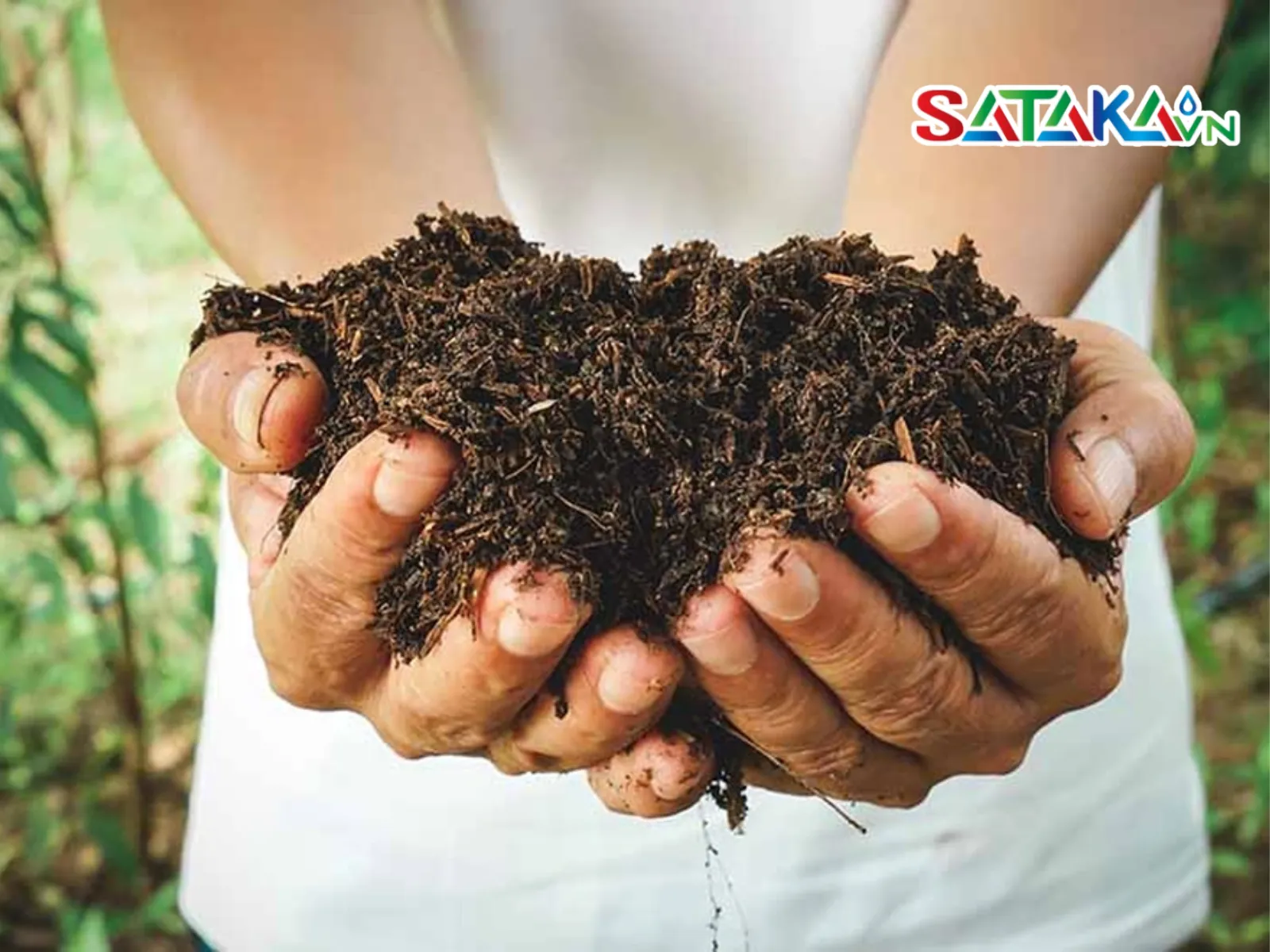
Coffee grounds help protect plants from pests
Coffee grounds can be used as mulch to provide additional benefits. When spread on the soil surface, coffee grounds help retain soil moisture and supply essential nutrients. As they decompose slowly, they form a mulch layer that improves soil structure, enhances water retention, and adds organic matter to support plant growth.
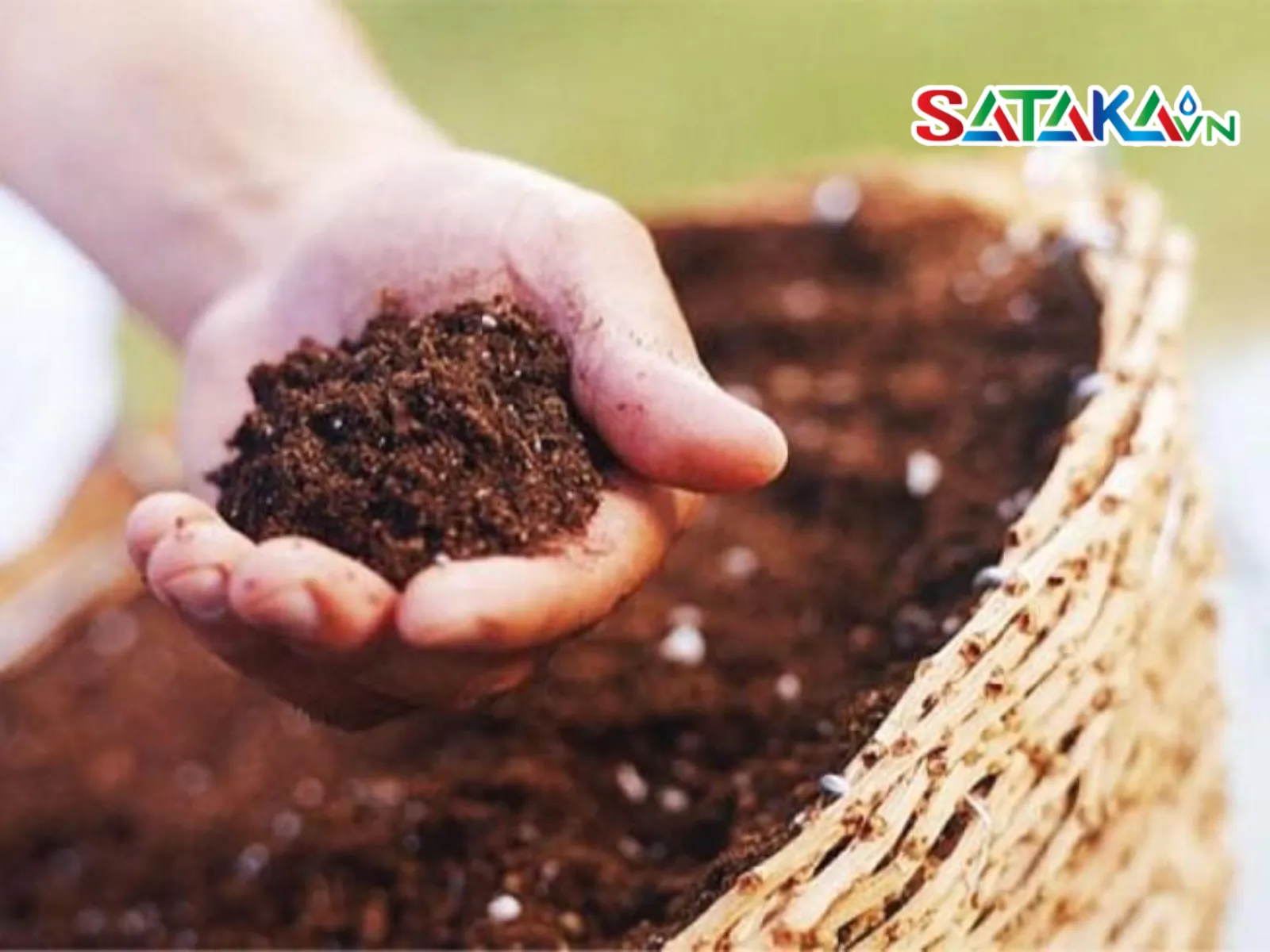
Coffee grounds are used as mulch for the soil
Another way to utilize the benefits of coffee grounds is by creating a nutrient-rich coffee ground tea. Soak coffee grounds in water overnight, then strain the mixture to extract the liquid. This nutrient-rich water can be used to irrigate plants, providing vitamins and minerals that promote healthy growth.
Beyond the main uses, coffee grounds offer other advantages, including:
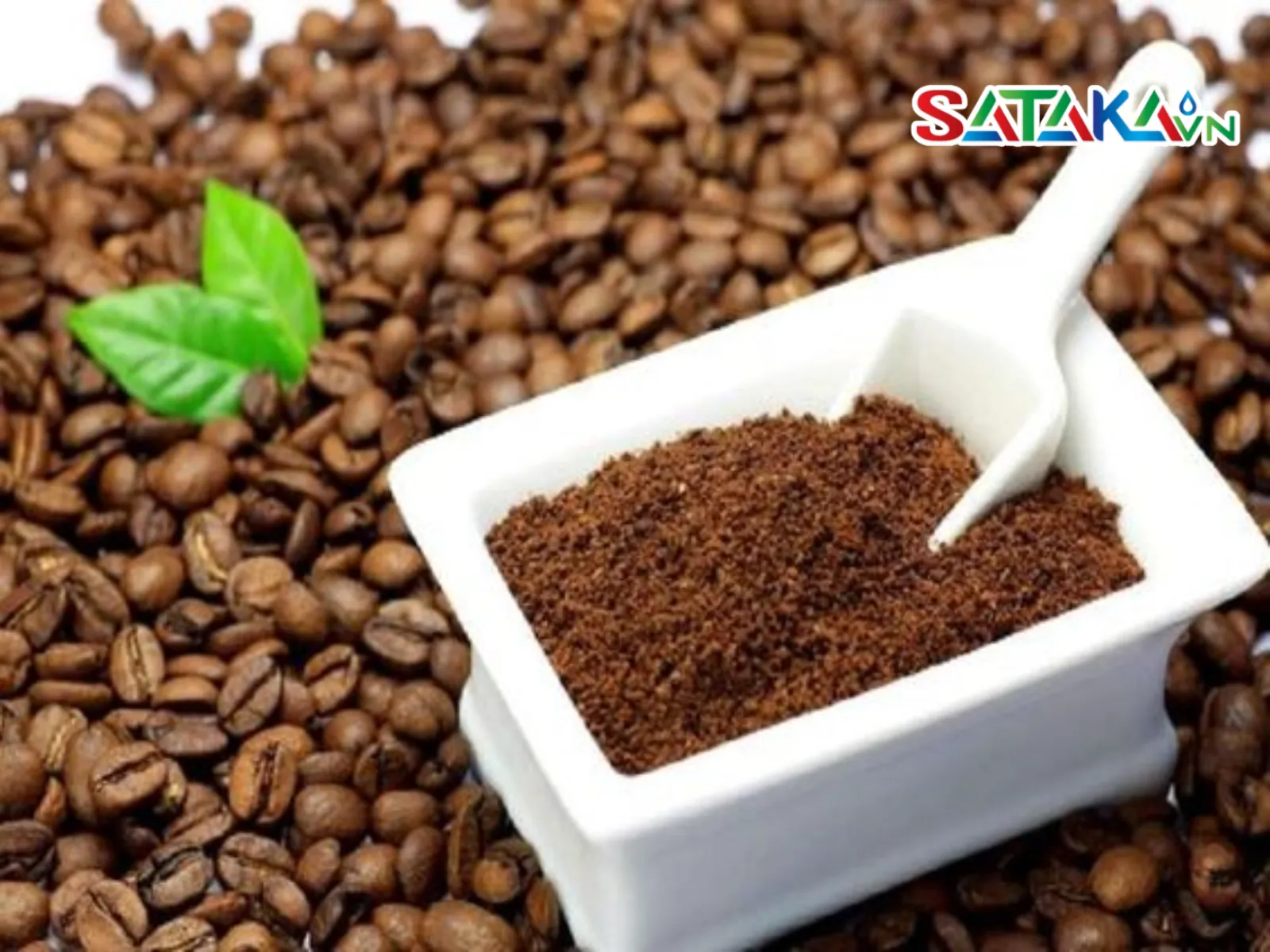
The effect of coffee grounds on plants is to help improve soil quality
To maximize the benefits of coffee grounds for plants, follow these tips:
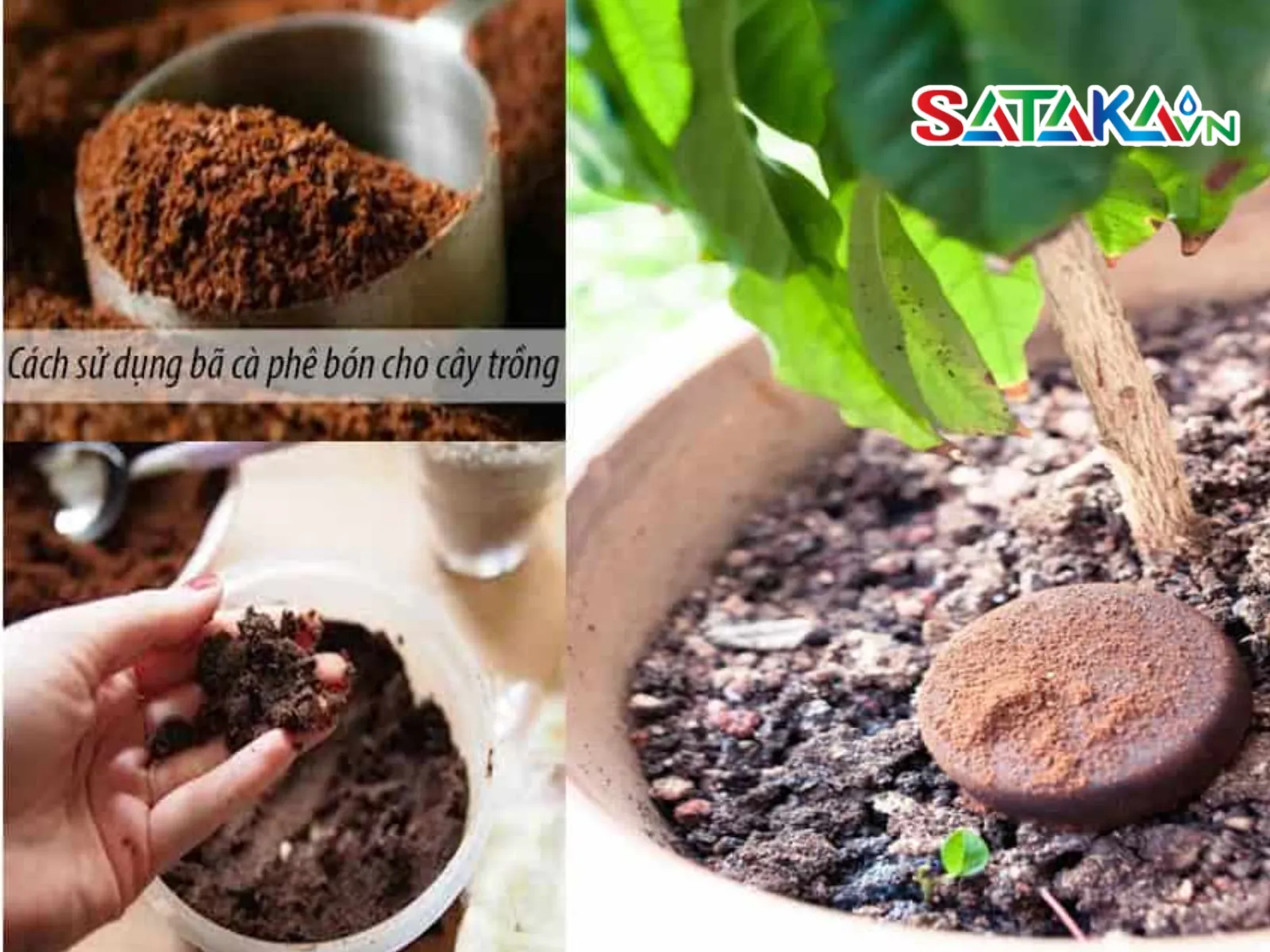
How to fertilize with coffee grounds effectively
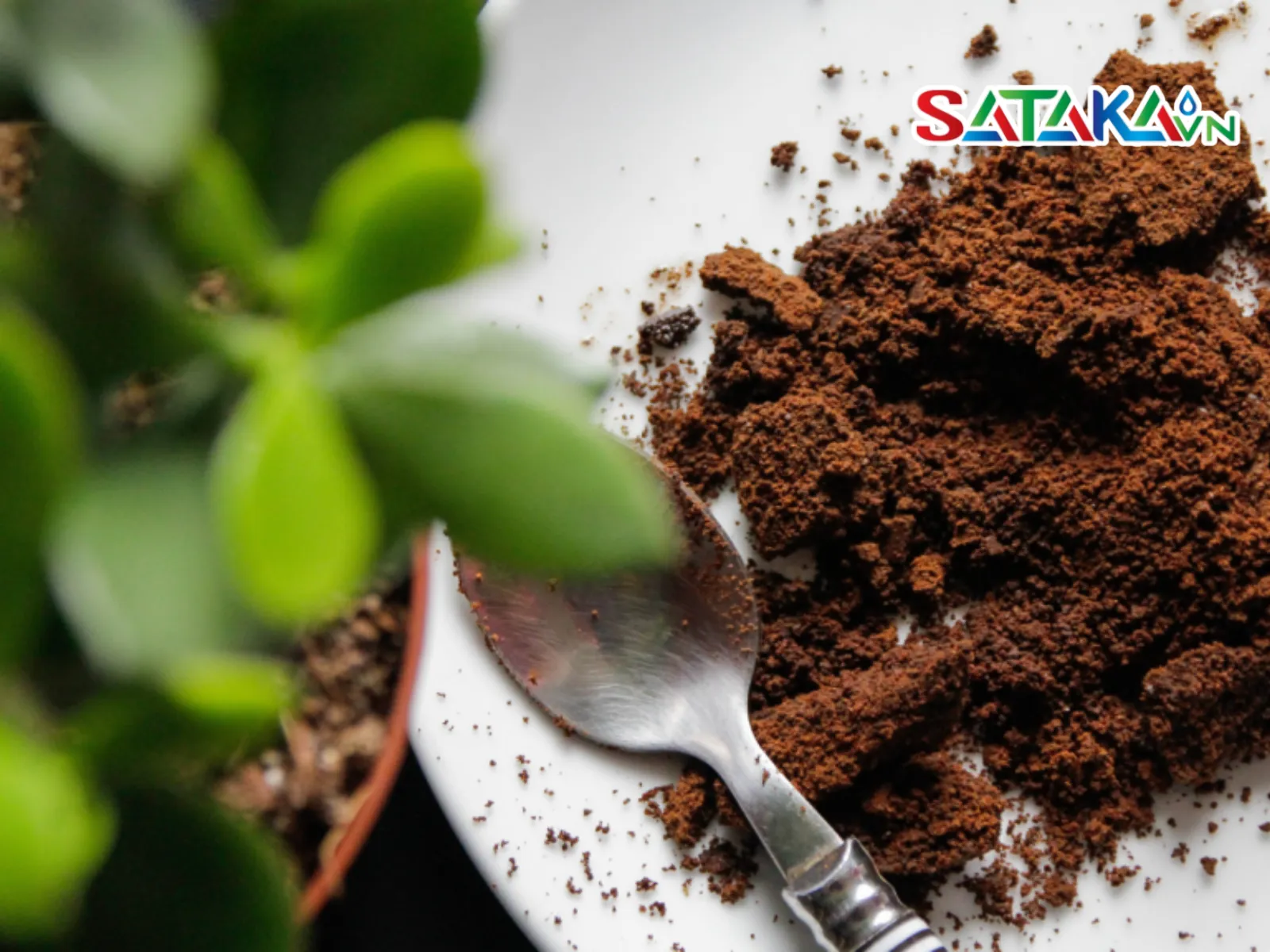
Control amount used
The benefits of coffee grounds for plants extend beyond improving soil quality; they offer numerous additional advantages. From enhancing soil structure to serving as organic fertilizer, mulch, and nutrient-rich water, coffee grounds are a simple yet effective resource. With the information provided by Sataka, we hope you can make the most of these incredible benefits. Don’t miss the opportunity to leverage this simple yet powerful solution for your plants!